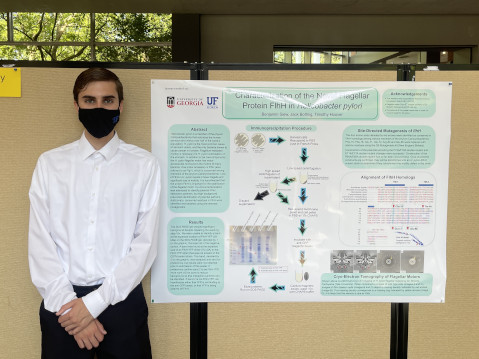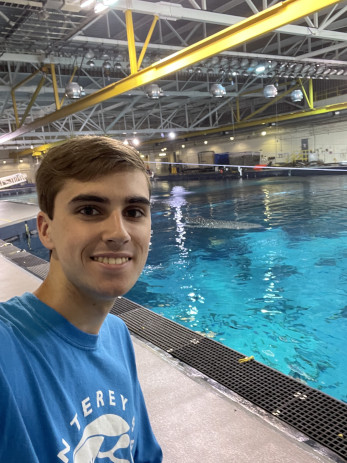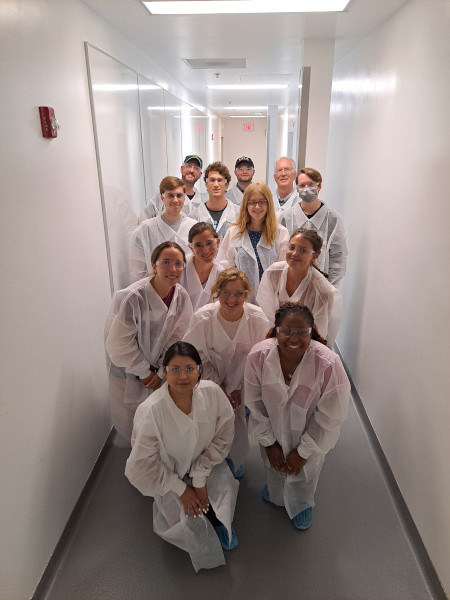by Benjamin Siew
Going into my freshman year, I knew that getting involved in research would be an important aspect of a successful four years as a Microbiology major, but knew little more about it. At my orientation, I met Dr. Jacob T. Watson, who encouraged me to get involved in research and recommended I enroll in his Beyond120 class, Intro to Research in Liberal Arts and Sciences. Having space for another credit, I decided to give it a shot. I learned about the research process, how to present work, and most importantly, how to get involved. With this knowledge, I was eager to start my research journey sooner rather than later, and began studying halophiles with Dr. Maupin-Furlow in the spring semester. I also decided that I wanted to spend my summer doing a research internship, and so began looking into summer Research Experience for Undergraduates (REU) programs, which are research internships sponsored by the NSF. After applying to several with the help of a recommendation letter from Dr. Watson, I was accepted to the University of Georgia’s Microbiology REU!
I was assigned to work in Dr. Timothy Hoover’s lab studying a novel flagellar protein in a bacteria called Helicobacter pylori, which is the most common cause of stomach ulcers and the only bacteria known to cause cancer and infects over half of the world’s population at some point. Progress on my project was a slow and bumpy road, but it was rewarding to know that I was helping to create a more thorough understanding of the biology of such a significant species. As a full-time internship, it also gave me valuable insight into what life is like as a full-time researcher and/or graduate student.
Beyond (no pun intended) squirting small volumes of liquids into small tubes and seeing what happens, the program also put a great emphasis on exploring the various career options available in the field of microbiology. This involved touring the Boehringer Ingelheim animal health research facility in Athens, who develops medicines and vaccines for companion animals as well as livestock, giving us insight into what life is like working in industry. We also toured the BSL-3Ag (meaning it has many sophisticated means of preventing in vivo animal pathogens being studied within from escaping) facility on campus, one of very few in the country, and got the rundown on how the various safety and pathogen containment systems work. My favorite part of the program, though, was our behind the scenes tour of the Georgia Aquarium! We were shown how their massive open ocean exhibit is maintained and fed, the on-site microbiology lab, animal hospital, and how the researcher giving us the tour studies shark eggs to learn more about their ecology and microbiome.
The program culminated in my first poster presentation since my sixth-grade science fair, and I dove straight into the deep end with it. The final results of my main experiment were be determined by proteomics which did not come back until the morning of my presentation, and the results were largely surprising. It was an interesting experience and a bit scary but I felt very confident with the rest of my presentation, so despite the universe’s best efforts I had a very positive experience!
My experience with my summer internship, past research, and Beyond120 course have encouraged me to further explore different fields and opportunities available under the microbiology umbrella, and further confirmed my desire to attend a PhD program to pursue a career in research. I’d like to emphasize, though, that my interest in all the above was kicked off by my experience in Intro to Research in Liberal Arts and Sciences, so if you’re interested in research at all yourself, I highly recommend giving the class a shot!



